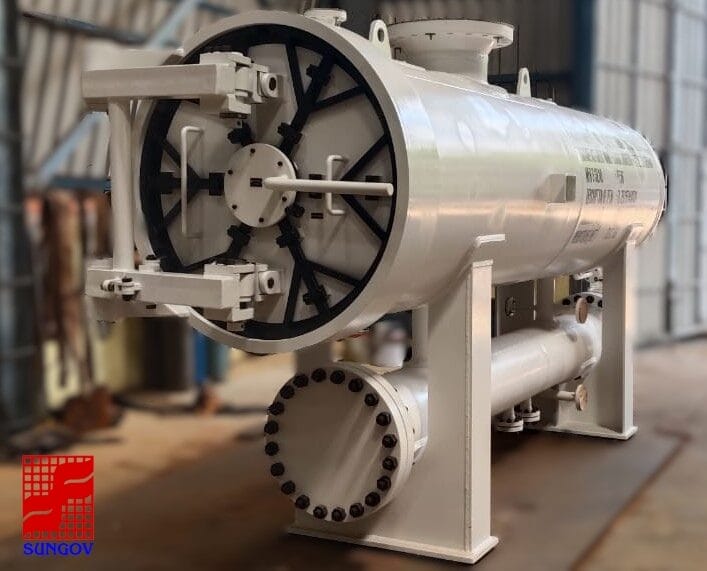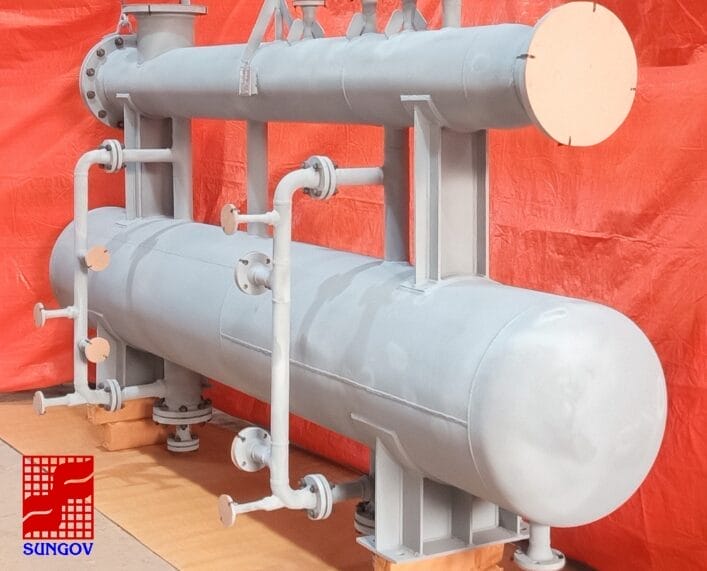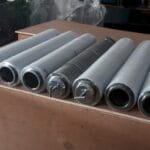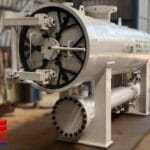Why Efficiency Matters in Natural Gas Systems
In natural gas operations, efficiency isn’t just a buzzword — it’s the backbone of profitability and reliability. When a system runs efficiently, it means that less energy is wasted, the equipment lasts longer, and the overall output remains consistent and high-quality.
This in turn impacts operating costs, as smoother systems require less frequent maintenance and downtime. In an industry where margins can be tight and safety is paramount, even minor inefficiencies can snowball into costly problems. Whether it’s during extraction, processing, or transmission, every part of the natural gas value chain benefits from streamlined, optimized performance.
What Is a Filter Separator and How Does It Work?
You may need to imagine a filter separator to be the system’s gatekeeper. The job of a filter separator is to make sure only clean, dry gas moves forward. In natural gas processing, raw gas is often accompanied by a mix of dust, liquids, and other unwanted particles. A filter separator tackles this in two stages. First, the filter element traps solid contaminants like rust, scale, and dirt. Then, in the second stage, the separator removes entrained liquids such as water and hydrocarbons using coalescing or centrifugal action. The result? A much cleaner gas stream that helps protect downstream equipment and ensures the system runs more smoothly. It’s a quiet worker, but its role is critical to keeping everything else operating at their peak performance.
Cleaner Gas Means Smoother Operations
When natural gas is free from contaminants, it is a benefit to the entire system. Clean gas flows more smoothly through pipelines, reducing friction, wear, and unexpected pressure drops. More importantly, it prevents damage to sensitive downstream equipment like compressors, turbines, and meters. Dirty gas, on the other hand, leads to corrosion, clogging, and frequent shutdowns for maintenance. By ensuring the removal of liquids early in the process, filter separators help maintain steady performance, minimize interruptions, and extend the life of critical assets. In short, the cleaner the gas, the more reliable and efficient the operation.

Helping Your Plant Stay Compliant and Safe
There is a reason that regulations in the natural gas industry are stricter than any other. The primary reason being—safety and environmental protection. Contaminants in the gas stream don’t just harm equipment; they can also lead to hazardous situations like leaks, corrosion, or even system failures. Filter separators play a key role in reducing these risks by ensuring that harmful liquids are removed before they can cause trouble. By maintaining cleaner gas quality, plants are better equipped to meet industry standards, avoid regulatory penalties, and create a safer working environment for their teams. In the long run, it’s not just about staying compliant, but it is about building a culture of safety and reliability.
Choosing the Right Filter Separator for Maximum Impact
Not all filter separators are created equally, and choosing the right one can make a significant difference in your system’s efficiency and reliability. The ideal unit depends on several factors: gas flow rate, pressure levels, the type and quantity of contaminants present, and the specific needs of your operation. For example, high-liquid-content applications may benefit more from vertical filter separators with enhanced liquid handling capabilities, while dry gas systems with solid particles might be better served by horizontal designs focused on solid filtration. Understanding these variables is key to avoiding underperforming equipment and maximizing return on investment.
Beyond performance, it’s also important to consider ease of maintenance, material compatibility, and long-term durability. A well-chosen filter separator not only improves gas quality but also protects expensive downstream equipment, reduces operational downtime, and supports regulatory compliance. Partnering with a knowledgeable supplier or engineering team such as Sungov Engineering can help you assess your process conditions and select a solution tailored for maximum impact—keeping your plant running efficiently, safely, and cost-effectively.

Small Device, Big Efficiency Boost
In the grand scheme of a natural gas processing plant, a filter separator might seem like a small component—but its impact is anything but minor. By effectively removing contaminants early in the process, it sets the stage for smoother operations, longer equipment life, fewer shutdowns, and greater overall efficiency. It’s a smart investment that pays off in performance, safety, and cost savings. When chosen and maintained correctly, a filter separator quietly does its job in the background—yet plays a starring role in keeping your system running at its best. Sometimes, it’s the smallest parts that make the biggest difference.
Frequently Asked Questions
What is a natural gas filter separator and how does it work?
A natural gas filter separator removes solids and liquids from raw gas using a two-stage process—filtration and separation—ensuring cleaner and safer gas processing.
Why is gas filtration important in natural gas processing?
Gas filtration prevents corrosion, protects downstream equipment, reduces maintenance costs, and improves system reliability throughout the natural gas value chain.
How do I choose the right filter separator for my gas system?
Selecting the ideal filter separator depends on gas flow rate, pressure, contaminant type, and specific application needs—consulting experts ensures optimal performance.




